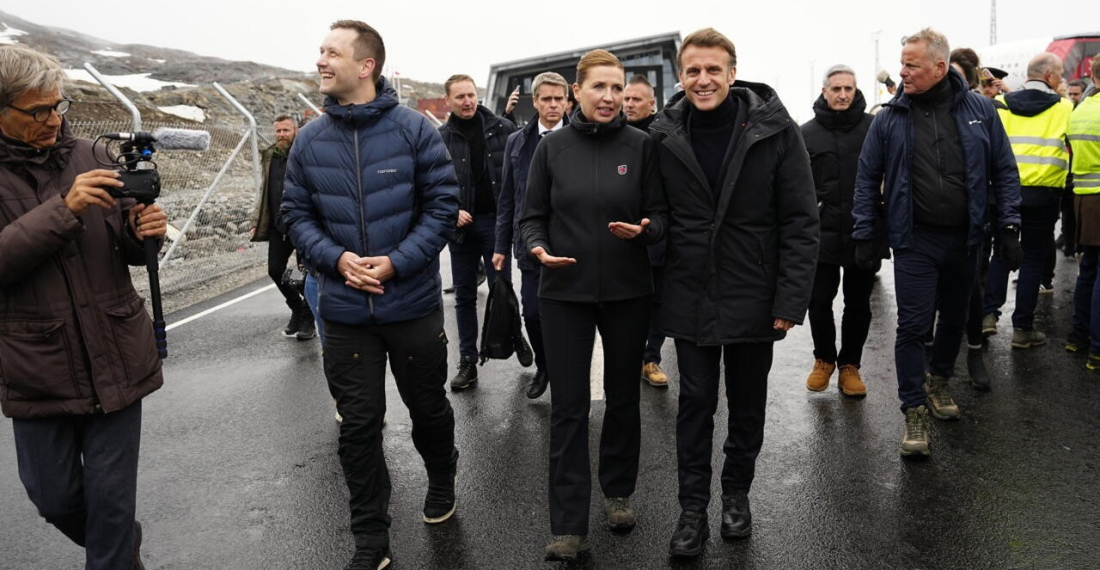French President Emmanuel Macron arrived in Greenland on Sunday, where he conveyed European solidarity and support for the Danish autonomous territory. "It’s important to show that Denmark and Europe are committed to this territory, which has very high strategic stakes, and whose territorial integrity must be respected," Macron said.
The French president criticised US President Trump's threats to annexe Greenland as he made a visit to the Danish autonomous territory.
"That's not what allies do," Macron said as he arrived in Nuuk, Greenland's capital.
Macron is the first foreign head of state to visit the vast territory -- located at the crossroads of the Atlantic and the Arctic -- since Trump's annexation threats.
Trump, since returning to the White House in January, has repeatedly said America needs the strategically located, resource-rich island for security reasons, and has refused to rule out the use of force to secure it.
Denmark has also repeatedly stressed that Greenland "is not for sale."
Macron said his visit was aimed at conveying "France's and the European Union's solidarity" for "the sovereignty and territorial integrity" of Greenland.
Danish Prime Minister Mette Frederiksen, Greenlandic Prime Minister Jens-Frederik Nielsen, and dozens of Greenlanders waving their territory's red-and-white flags, were on hand to greet the French president.
Macron kicked off his six-hour visit with talks on board a Danish frigate with Frederiksen and Nielsen.
He was to later visit a glacier to see firsthand the effects of global warming.
Source: commonspace.eu with France24 (Paris) and agencies
Photo: The French President arrived in Greenland, on Sunday, June 15, 2025 and was welcomed by the Chairman of the Naalakkersuisut, Jens-Frederik Nielsen, and Danish Prime Minister Mette Frederiksen. (picture courtesy of France 24, Paris).







